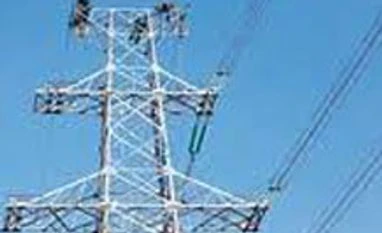The Delhi Electricity Regulatory Commission (DERC) has hit back at the Aam Aadmi Party (AAP) government in the national capital for deciding to summon its chief to the Assembly to explain the rise in power rates.
In a letter to the Delhi government, the commission cited the “inappropriate” nature of the demand by AAP. The letter, reviewed by Business Standard, says all the orders of the commission come under the Electricity Act and a dispute in this regard should be challenged legally. “DERC is a quasi-judicial autonomous and statutory institution set up under the Electricity Act, 2003, and is exclusively mandated to fix tariff and take up all related areas of functioning, as prescribed under section 86 of the Act,” the letter said.
Questioning the government’s stand, DERC said blaming the commission for the wrongdoings of distribution companies (discoms) was uncalled for, especially as the government was a 49 per cent stakeholder in all discoms. “The Delhi government has 49 per cent share holding in all distribution companies and its high officials are directors on the boards of these companies. The government is, therefore, expected and assumed to be familiar with the affairs of the discoms. It might not be proper for any stakeholder (such as the government) to raise questions of the DERC regarding its quasi-judicial functioning by administrative recourse,” the letter said.
It added all orders and decisions of the DERC were available on its online portal and it wasn’t in a position to “explain” these in greater detail than what has been already done. “It would not be appropriate or fair to all stakeholders for DERC to respond to specific allegations in respect of the exercise of tariff-fixation because these have financial implications for all concerned,” DERC said.
An expert said, “This (summoning the DERC chief) is against the Electricity Act…If any person or party has any question over a ruling of the c, it should be addressed through a legal route.”
A senior lawyer with a noted legal firm said as powers of the legislature and judiciary were kept separate, one couldn’t overrule the other. “No state government can call a regulator, which falls in the quasi-judicial category, for providing a reason for its decisions,” he said.
While DERC officials declined to comment, AAP members couldn’t be immediately reached for a response.
Last week, members of legislative Assembly from the AAP had demanded the DERC chief appear before the Assembly to explain the high power rates in the National Capital Territory of Delhi. Alleging DERC was favouring power distribution companies in the capital, the members said the independent role of the commission should be looked into.
In a letter to the Delhi government, the commission cited the “inappropriate” nature of the demand by AAP. The letter, reviewed by Business Standard, says all the orders of the commission come under the Electricity Act and a dispute in this regard should be challenged legally. “DERC is a quasi-judicial autonomous and statutory institution set up under the Electricity Act, 2003, and is exclusively mandated to fix tariff and take up all related areas of functioning, as prescribed under section 86 of the Act,” the letter said.
Questioning the government’s stand, DERC said blaming the commission for the wrongdoings of distribution companies (discoms) was uncalled for, especially as the government was a 49 per cent stakeholder in all discoms. “The Delhi government has 49 per cent share holding in all distribution companies and its high officials are directors on the boards of these companies. The government is, therefore, expected and assumed to be familiar with the affairs of the discoms. It might not be proper for any stakeholder (such as the government) to raise questions of the DERC regarding its quasi-judicial functioning by administrative recourse,” the letter said.
It added all orders and decisions of the DERC were available on its online portal and it wasn’t in a position to “explain” these in greater detail than what has been already done. “It would not be appropriate or fair to all stakeholders for DERC to respond to specific allegations in respect of the exercise of tariff-fixation because these have financial implications for all concerned,” DERC said.
An expert said, “This (summoning the DERC chief) is against the Electricity Act…If any person or party has any question over a ruling of the c, it should be addressed through a legal route.”
A senior lawyer with a noted legal firm said as powers of the legislature and judiciary were kept separate, one couldn’t overrule the other. “No state government can call a regulator, which falls in the quasi-judicial category, for providing a reason for its decisions,” he said.
While DERC officials declined to comment, AAP members couldn’t be immediately reached for a response.
| AT LOGGERHEADS |
|
Last week, members of legislative Assembly from the AAP had demanded the DERC chief appear before the Assembly to explain the high power rates in the National Capital Territory of Delhi. Alleging DERC was favouring power distribution companies in the capital, the members said the independent role of the commission should be looked into.
)